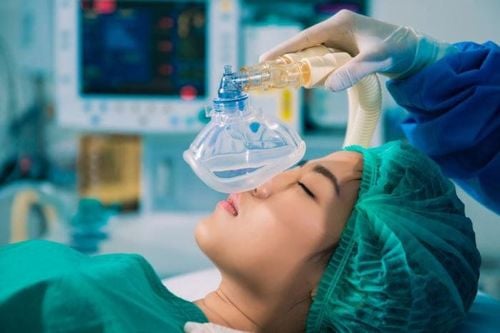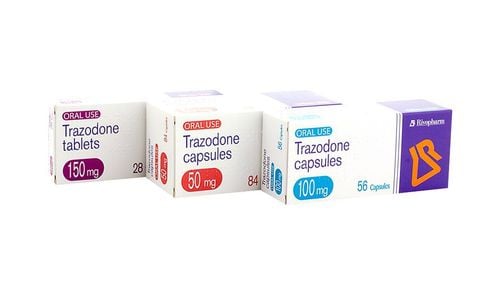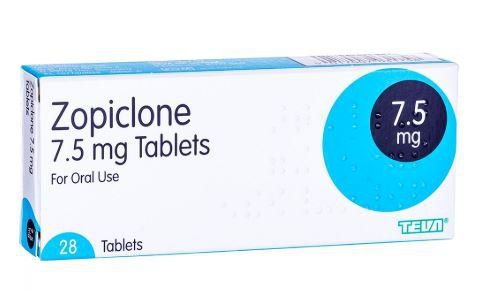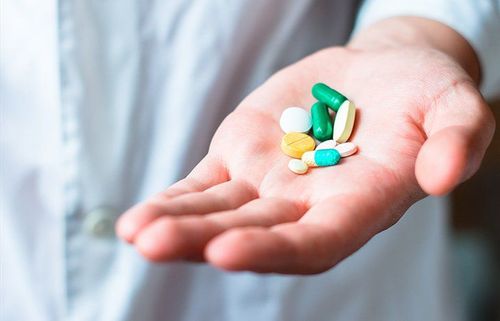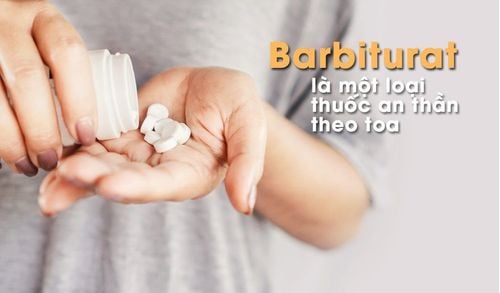This is an automatically translated article.
Sleep disorders such as insomnia, poor sleep are very common nowadays, causing many obstacles to patients' lives. There are many different classes of insomnia medications, but the most effective are sedatives. A typical representative of this group is the drug Eszopiclone. So what does Eszopiclone do?
1.What is the effect of Eszopiclone? Eszopiclone is used to treat a sleep disorder (such as insomnia). The effect of the drug is to help patients fall asleep faster, sleep longer and reduce the frequency of awakenings in the middle of the night, which can improve sleep.
Eszopiclone belongs to the class of tranquilizers, which work by calming the patient's brain. Patients only use Eszopiclone for a limited time, at most from 1-2 weeks. If insomnia persists, talk to your doctor to find another treatment.
2. How to use Eszopiclone The patient should read the instructions for use before starting to use Eszopiclone. The drug is taken orally as directed by the doctor, taken at bedtime. Patients should not take Eszopiclone with or immediately after a greasy or large meal as this may reduce or reverse the effect of Eszopiclone. The dose of Eszopiclone is prescribed based on the individual's medical condition, age, liver function, other medications, and response to treatment. Absolutely do not abuse and overdose with Eszopiclone than indicated because it will increase the risk of side effects.
The starting dose of Eszopiclone is usually 1mg at bedtime. This dose helps patients sleep easily and safely because it reduces the risk of problems when working the next day (such as driving or operating machinery).
In some cases, the patient will feel drowsy, not fully awake the next day, especially if prescribed a dose of 3mg eszopiclone, the patient should not perform activities that require alertness the next day. after.
For people who are elderly or have liver disease, low dose Eszopiclone should be used to reduce the risk of drowsiness and fatigue the next day.
Another note is that patients should not use Eszopiclone if there is not enough time to have a sleep lasting from 7 to 8 hours. If you have to wake up in the middle, you may experience memory loss and have trouble doing any activities that require alertness and safety (such as driving or operating machinery). If you suddenly stop using Eszopiclone, you may experience withdrawal symptoms (such as nausea, vomiting, flushing, stomach cramps, anxiety, tremors). To help prevent this problem, your doctor may reduce your dose of Eszopiclone slowly. The risk of developing withdrawal syndrome is higher when patients have used eszopiclone for a long time or in high doses.

Người bệnh cần sử dụng thuốc Eszopiclone theo hướng dẫn của bác sĩ
Eszopiclone used for a long time may be reduced or completely ineffective. Although Eszopiclone helps people sleep better, it can sometimes be addictive. This risk is higher if the person has a substance use disorder (such as abusing or addicted to drugs or alcohol). Therefore, patients need to use Eszopiclone exactly as prescribed to reduce the risk of addiction.
Inform doctor if insomnia persists after 7 to 10 days of taking the drug or when condition worsens. Users may have trouble sleeping for the first few nights after stopping Eszopiclone. This is known as reversible insomnia and is completely normal, it should go away after 1 or 2 nights, but if this effect persists contact your doctor.
3. Eszopiclone side effects Possible side effects of Eszopiclone include:
Dizziness; Dry mouth ; Unpleasant taste in the mouth; Difficulty coordinating movements. If any of the effects of Eszopiclone persist or get worse, tell your doctor or pharmacist right away.
Eszopiclone can make users sleepy during the day, so patients should inform their doctor if this occurs and the dosage may need to be adjusted.
Some serious side effects of Eszopiclone should be reported to your doctor quickly, including:
Memory loss; Mental/mood/behavioral changes (such as new/worsening depression, unusual thoughts, suicidal ideation, hallucinations, confusion, agitation, aggressive behavior, excessive anxiety). Very serious allergic reactions to Eszopiclone are very rare with symptoms including: rash, itching/swelling (especially of the face/tongue/throat), severe dizziness, trouble breathing... nearest medical facility immediately.
4. Precautions when using Eszopiclone Before taking eszopiclone, it is necessary to tell the doctor if the patient is allergic to eszopiclone or zopiclone; or any other allergies.
Before using Eszopiclone, tell your doctor or pharmacist your medical history, such as: kidney disease, liver disease, lung problems (chronic obstructive pulmonary disease - COPD, sleep apnea). , psychiatric problems (depression, suicidal thoughts), personal or family history of a substance use disorder (drug/alcohol abuse or addiction), personal or family suffers from sleepwalking, certain muscle diseases (myasthenia gravis).
The effects of Eszopiclone can last even when the patient wakes up the next day. If the patient is unable to sleep for 7 to 8 hours or takes other medicines that make him or her drowsy or become more sensitive to Eszopiclone, this may affect the ability to drive. Therefore, wait at least 8 hours after taking Eszopiclone before you can drive. Do not drive, use machines, or do anything that requires you to stay awake while using Eszopiclone.
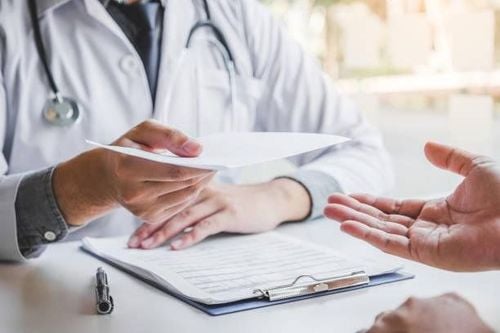
Thuốc Eszopiclone được chỉ định sau khi thăm khám
Eszopiclone should be used only when clearly needed during pregnancy after discussing the risks and benefits with your doctor. Newborns born to mothers who took Eszopiclone near the time of birth may have unwanted effects such as excessive sleepiness.
It is not known with certainty that Eszopiclone passes into breast milk when an infant is breastfed, so consult your doctor before giving Eszopiclone to a nursing woman.
5. Drug Interactions Eszopiclone Products that may interact with Eszopiclone are: sodium oxybate. Products that cause drowsiness should be reported to your doctor if you are taking: opioid pain relievers or cough suppressants (codeine, hydrocodone), alcohol, sleeping pills/anxiety medications (alprazolam, lorazepam, zolpidem). ), muscle relaxants (carisoprodol, cyclobenzaprine) or antihistamines (cetirizine, diphenhydramine).
Check the labels of all medicines you are taking with Eszopiclone (such as allergy or cough and cold products) as these may contain ingredients that cause drowsiness.
Eszopiclone is very similar to zopiclone, so patients need to be careful not to use drugs containing zopiclone while using eszopiclone.
Symptoms of Eszopiclone overdose may include: slow breathing, shallow breathing, deep sleep that cannot be awakened. As the body ages, an elderly person's sleeping habits can naturally change, and sleep is often disrupted several times during the night. It is best to consult a doctor or pharmacist for ways to improve sleep without medication such as: avoid caffeine and alcohol near bedtime, avoid daytime naps and go to bed at the same time every night.
If the patient misses a dose of Eszopiclone, do not take it as soon as you remember it unless the patient has had time to fall asleep 7-8 hours after taking the medicine.
Eszopiclone is used to treat sleep disorders. In order for the drug to work best, the patient needs to take the drug according to the prescription, when there are abnormal signs, it is necessary to go to the medical center for examination and treatment.
Please dial HOTLINE for more information or register for an appointment HERE. Download MyVinmec app to make appointments faster and to manage your bookings easily.
Reference source: webmd.com




